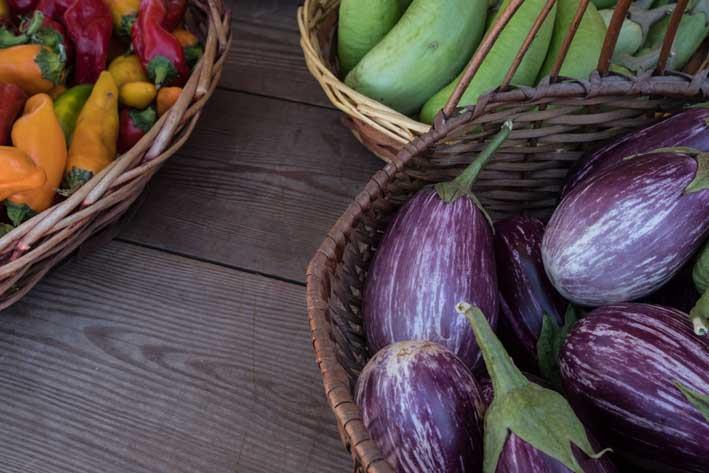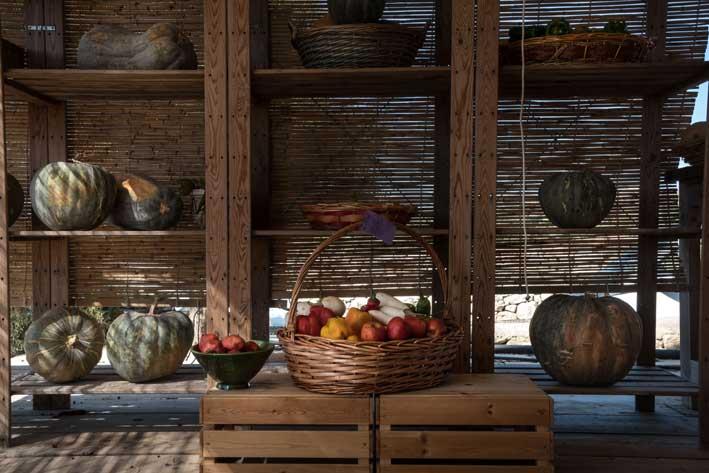Pesticides have been the talk of the town over the summer, following an EU report which showed high levels of pesticides in Malta's fruit and vegetable samples. This was criticised by some people working in the field (no pun intended) as being unfair and not portraying a realistic situation.
Pesticides are hidden from plain sight and therefore we will never really know just how big or small a dosage of pesticides we are actually consuming. What we do know, however, is that although pesticides help to fight off pests from crops, they can cause damage to us human beings, if consumed. With this in mind, this begs the question: "What can we do about controlling our pesticide consumption (that doesn't involve us carrying microscopes around in our bags)?"
First spoke to certified nutritionist Maxine Zerafa from Mnutrition to shine a light on the subject and find out what we, as consumers, can do about it.

What are pesticides?
Pesticides are chemical compounds that are intended to kill 'pests' on fruit and vegetables, but they are potentially poisonous to other organisms too, including us humans.
How bad are pesticides for our health?
There are over 1,000 pesticides in use around the world, and each has its own different properties and toxicological effects. This is why the effect and outcome it can have on our health varies immensely. Factors such as the type of pesticide, the duration and route of exposure and the individual health status of those affected all need to be taken into consideration.
Studies have found - and keep finding - that pesticide exposure can harm us in a number of serious ways. These can include skin issues and irritations, headaches, fertility and reproductive problems, neuro-degenerative conditions, respiratory problems such as asthma and cancers. Pregnant mothers and children are particularly sensitive, as exposure can cause disruption to endocrine systems, childhood cancers, neuro-developmental issues and more. Frankly, the repercussions of uncontrolled pesticide use are very worrying, both for us and for the environment.
Are there any ways of telling if many pesticides have been used on fruit and vegetables?
Not really. For the general consumer there is no way to know what and how many pesticides are in our fruit and vegetables. It is up to the competent European and Maltese authorities to regulate and ensure that the produce reaching the public is safe to consume. One way of ensuring lower pesticide residues in fruit and vegetables, and probably the safest option available, is to choose certified organic produce. Fortunately, there is some access to organic fruit and vegetables on the island and hopefully there will be more options from which to choose in the near future.
What can be done in order to ensure we are removing pesticides as much as possible when buying fruit and vegetables?
The majority us who buy fruit and vegetables from the local greengrocery or supermarket can eliminate some of the pesticides on and in our produce by rinsing them. Water alone is already helpful to some degree. What may be the best way to clean fruit and vegetables emerged from a recent study published in the Journal of Agricultural and Food Chemistry. This study found that using a baking soda solution was most effective way to remove pesticide residues from both the surface and under the skin of apples. Adding a teaspoon of baking soda to some water would do the trick for most fruit and vegetables and can be done easily in any kitchen.

Are there any fruit or vegetables that are 'safer' to eat than others or is there no difference?
Not all fruit and vegetables are created equally - some contain far more pesticides than others and as such could have a greater adverse effect on our health. There is some guidance on this that is released by the Environmental Working Group - an American non-profit, non-partisan organisation that is dedicated to protecting human health and the environment. Every year they release a list of fruit and vegetables that have been found to have the highest and lowest levels of pesticide residues - these lists are known as the 'dirty dozen' and the 'clean fifteen'. They are used as a guide by consumers around the world and they can be of some use to us as well.
Are there any safer alternatives when sourcing our fruit and vegetables?
As mentioned above, opting for organically grown fruit and vegetables is definitely safer, especially in respect of those fruit and vegetables that are most highly contaminated. But they cost more, which may be out of the question for many, but the alternative may be far worse for our health.
What would your advice be in this respect?
My advice would be to always include fruit and vegetables as part of a healthy and balanced diet, regardless of whether or not they are organic. Awareness of from where our produce is coming and taking the necessary precautions, such as washing it thoroughly, will - hopefully - always positively contribute to our diet and long-term health.
Maxine Zerafa is a registered, freelance nutritionist and dietician who set up MNutrition in 2013. Her main area of expertise is providing dietary advice and personalised meal plans to individuals and groups to help them achieve improved health, weight loss and overall well-being. Her belief is in promoting realistic and sustainable lifestyle goals. She also specialises in carrying out nutritional analysis of food products.
Contact details:
+356 99058116
[email protected]
https://www.facebook.com/mnutritionmalta/
Organic alternatives
Vincent's Eco Farm is one of the few places in Malta where you can be sure to find safer fruit and vegetable options when it comes to pesticides. This is because the produce they sell is all organic, which means they contain lower levels of pesticides. Apart from that, although it is not as long-lasting or cheap as conventional fruit and vegetables, it does have a richer taste.
A study by Newcastle University in 2014 found that organic food is more plentiful when it comes to antioxidant compounds linked to better health
According to NGO Friends of the Earth Malta, organic fruit and vegetables are largely grown without pesticides or synthetic fertilisers, and are strictly not genetically modified.
"Organic farming practices respect the environment and are aimed at supporting and preserving soil fertility, biodiversity and natural resources," it said in its project Agro Katina. It encourages eating local, seasonal and organic produce, arguing that doing so also supports shorters supply changes, which has a positive impact on local farmers, consumers, the environment, and the all-round economy.
Organic farming in Malta currently occupies only a relatively small part of the total agricultural land. However, we can tell it apart because certified organic produce can be identified by its 'EU organic' label.
Farmers growing organic produce are controlled and certified by the Malta Competition and Consumer Affairs Authority. A list of retailers and producers of organic food and vegetables can be found on the Friends of the Earth Malta website at https://foemalta.org/project/agrokatina/.